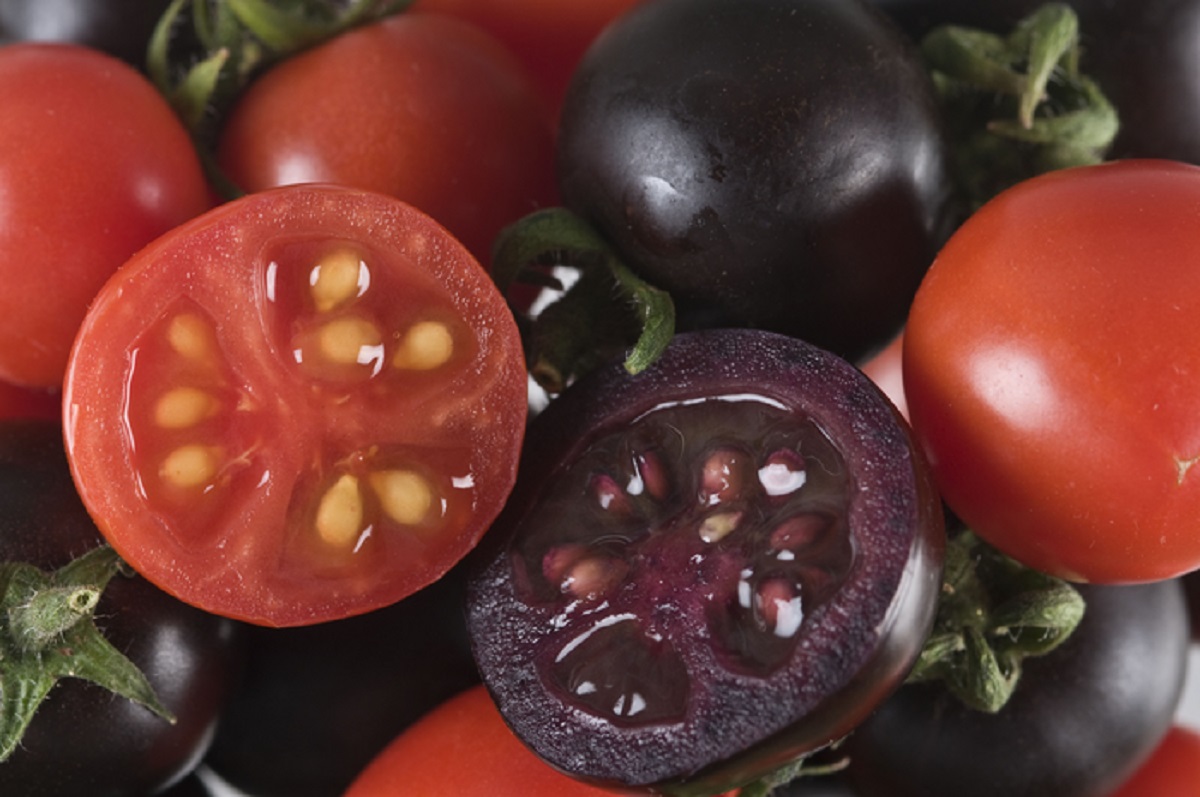Very soon you will be able to find fully purple tomatoes in US grocery stores. Genetically modified tomatoes received regulatory approval from the US Department of Agriculture (USDA) to alter their color and improve their nutritional quality.
To develop indoor and outdoor purple tomatoes, scientists have worked for 15 years. The fruits owe their vibrant color to pigments called anthocyanins.
Anthocyanins give blackberries and blueberries their characteristic hues and it is because of these plant chemicals that the berries are associated with health benefits. brain and heart health. Anthocyanins are important antioxidants for an anti-inflammatory diet.
“ Domesticated tomatoes already have genes for anthocyanin production, but they are not “turned on” in most fruits,” explains BigPurpleTomato.com. Scientists added two dragon plant genes that function as “on switches” and the purple pigments are produced throughout the tomato, not just the skin.
Purple tomatoes were developed by a team of scientists from Norfolk Plant Science, including British biochemist Cathie Martin, professor at the University of East Anglia and project leader at the John Innes Center in Norwich, England.
The Health Inspection Service USDA Plant and Animal reviewed the new tomato from Norfolk Plant Sciences. The plant was determined to be unlikely to present an increased risk of plant pests compared to other cultivated tomatoes.
The purple tomato is no longer subject to the regulations that limit the “Movement of Organisms Modified or Produced by Genetic Engineering”.
According to the USDA report, the purple tomato can be grown and used in a safe to breed in the United States.
Norfolk Plant Sciences notes that the USDA ruling means that home growers in the United States should be able to purchase seeds and grow the nutritionally enhanced anthocyanin-rich purple tomato from the spring of 2023.
The next step for Norfolk Plant Sciences is to obtain FDA approval for commercial release.
“The bittersweet thing is that tomatoes will be for sale in the United States and not in the United Kingdom as well”, shares the Cen tro John Innes.
“We also expect sensible regulatory frameworks for such products in the UK and effective methods of protecting our main crops from disease, using genetics rather than chemistry”, said Professor Jonathan Jones of the Sainsbury Laboratory.
It may interest you:
–Gardener breaks Guinness record by harvesting 1,15 cherry tomatoes on a stem
–Researchers find DNA from more than 400 insects in a single commercial tea bag
–Why camel milk is much more expensive than cow milk
